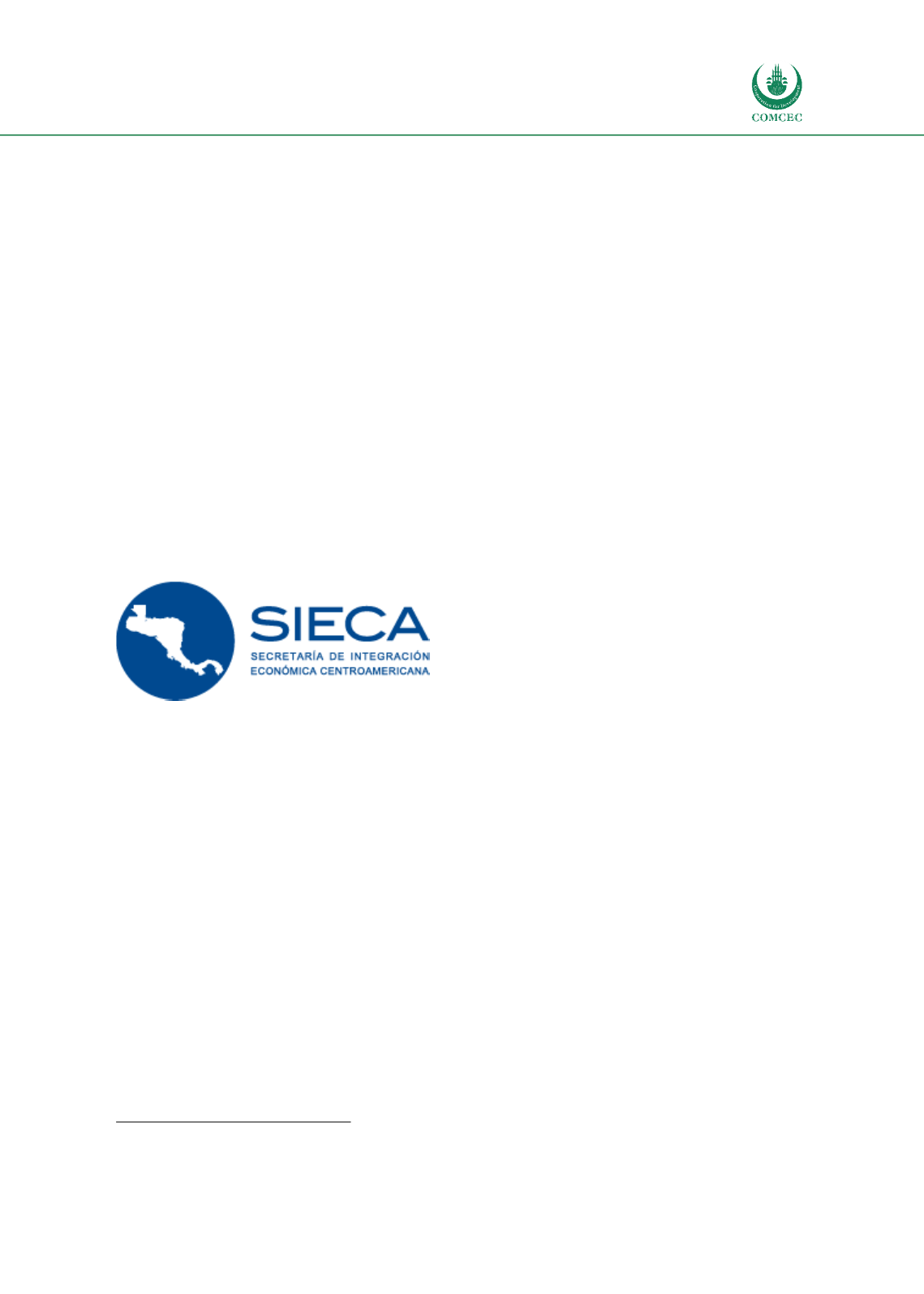

Improving Customs Transit Systems
In the Islamic Countries
63
TIM, only one document – Declaracio Unica de Transito (DUT - Unified Transit Declaration) is
used.
The addition of new routes was mainly determined by the decision of other Central American
countries to take part in the new transit regime. For instance, exports to Panama could be
processed under the TIM only once Costa Rica adhered to it.
2.2.2.5
Central American Integration & TIM Legal framework
The process of the economic integration of Central American countries starts with the
establishment of the Organization of Central American States (ODECA) in 1951 and the signature
of the General Treaty on Central American Integration in 1960.
At a conference inManagua, Nicaragua, on December 1960, the following three institutions were
established: the Central American Common Market, the Central American Bank for Economic
Integration (Spanish acronym: BCIE) and the Secretariat for Central American Economic
Integration (Spanish acronym: SIECA).
Figure 10: SIECA Logo
Source: SIECA Website
The next important step was the development of the Central American Integration System
(SICA) since 1993, as the economic and political organization of Central American countries,
which is based on the Protocol of Tegucigalpa (December 1991). Belize and Dominican Republic
joined SICA so that currently it has eight Member States. All these countries, in addition to
Mexico and Columbia, are also members of the
Mesoamerica Project (HQ in San Salvador).
The trade among Central American countries was liberalized with the
General Treaty for
Economic Integration
(the Guatemala Protocol), signed in October 1993, which effectively gave
life to the Central American Common Market - Mercado Común Centroamericano- MCCA,
followed by the
Framework Convention on Central American Customs Union
(2007), with
a common tariff -
SAC
: Sistema Arancelario Centroamericano and the following key legal
instruments
61
:
61
https://www.centrex.gob.sv/scx_html/Tratado_General_de_Integracion_C.A.html















